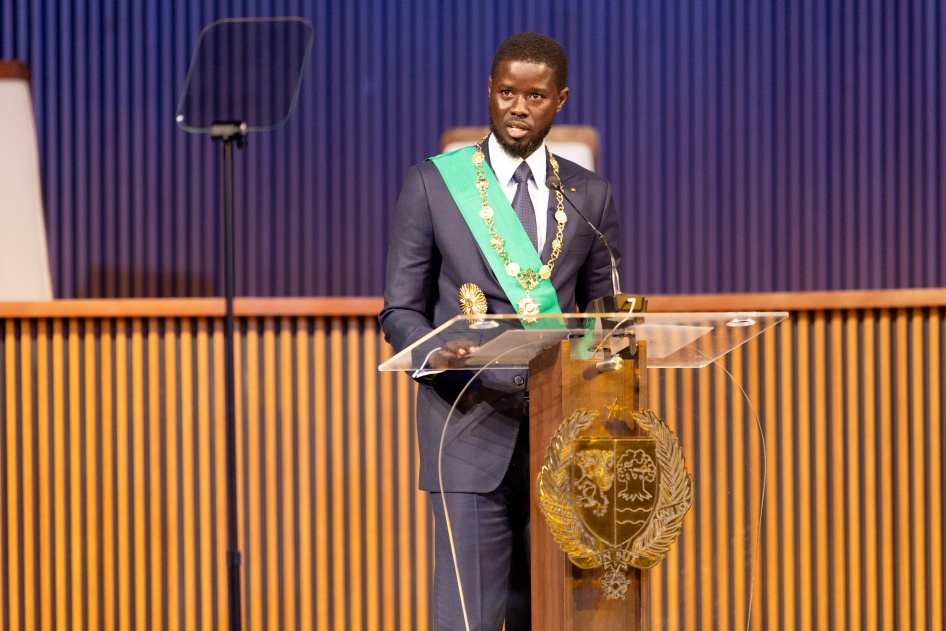(Nairobi) – Senegal’s newly elected president, Bassirou Diomaye Faye, should make protecting and promoting human rights a priority during his presidency, both within Senegal and regionally, Human Rights Watch said in a letter to the president made public today.
Human Rights Watch outlined five key recommendations to improve human rights in Senegal, urging Faye, during his term in office, to fight impunity for security forces’ abuse; promote and protect the rights to freedom of expression, assembly, and association; improve prison conditions; prioritize rights and saving lives when addressing irregular migration; and develop a foreign policy based on human rights. He should support rights-respecting democracies in West Africa and moves to strengthen the system of international justice.
“Faye has an important opportunity to create a rights-respecting administration that abides by the rule of law,” said Ilaria Allegrozzi, senior Sahel researcher at Human Rights Watch. “He should commit to reforms that will safeguard and advance human rights in the years to come.”
Faye, 44, the youngest president in Senegal’s history, was sworn into office on April 2, 2024, following delayed elections, and less than two weeks after he was released from prison, where he was serving a sentence over a Facebook post. On the day he was sworn in, Faye appointed his key backer, Ousmane Sonko, as prime minister.
On February 3, former President Macky Sall announced that presidential elections, slated for February 25, would be delayed, citing an institutional crisis that he said could damage the election’s credibility. In January, Senegal’s constitutional council had decided to exclude several candidates, including Sonko, from the electoral race. Senegal’s parliament set up a commission of inquiry to investigate the council's handling of the vetting process amid accusations of corruption against at least two of the council’s judges.
On February 6, Senegal’s parliament voted to delay the elections to December 15 after a chaotic National Assembly session during which security forces removed opposition lawmakers. This sparked violent protests in the capital, Dakar, and across the country on February 9 and 10, leading to the deaths of four people and the arrest of over 270 others.
On March 13, during a Council of Ministers meeting, following national and international pressure and a decision by Senegal’s constitutional court, Sall shortened the delay and announced that elections would be held on March 24.
The elections followed three years of political unrest, which included Sonko’s arrest in July 2023 and concerns that Sall would seek a third term despite constitutional term limits. The violence shook Senegal’s reputation as an example of a stable democracy in a region ravaged by military coups. Dozens were killed in the protests, and over 1,000 were arrested, including Faye.
Faye is the secretary general of the African Patriots of Senegal for Work, Ethics, and Fraternity (Patriotes africains du Sénégal pour le travail, l'éthique et la fraternité, PASTEF) party, the main opposition group dissolved by the authorities in July 2023. He was arrested on April 14, 2023, following a Facebook message in which he criticized magistrates and was charged with “undermining state security” and fomenting insurrection, among others. Faye was released on March 14 after the National Assembly adopted an amnesty law on March 6.
“By taking bold steps to strengthen human rights protections, President Faye would turn the page on the last years of violence, abuse, and impunity,” Allegrozzi said. “The Senegalese people and the world will be watching his actions closely.”








